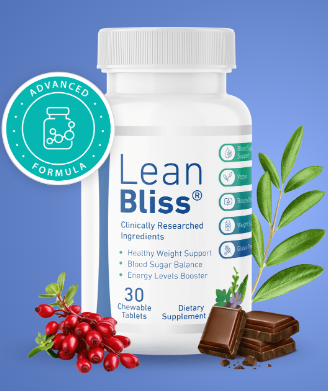
Muscle Recovery: 7 Proven Tips
Consider this scenario: you’re in the zone, giving your all at the gym or pounding the pavement on a run. You’re pushing boundaries, breaking down barriers, and feeling the burn. So what happens next? Do you ignore your muscles or treat them like VIPs? Have you given sufficient thought and attention on muscular recovery.
Muscle recovery is more than simply a phase; it’s the key to stepping up your exercise game. Prepare to experience the magic of post-workout refreshment. As we delve deep into muscle recovery, providing you with powerful tactics for being stronger, fiercer, and more unstoppable than ever before! Prepare to conquer your workouts and reach new heights of vitality and strength!
Importance of Muscle Recovery
Imagine your muscles as dedicated artisans toning your body, working endlessly to increase your strength and endurance. Every time you push yourself during a workout, you’re these, causing little tears in their fibers. While this may appear to be a setback, it is actually a necessary step toward advancement. These very tears are what makes your muscle stronger and more durable.
However, in order to reach their full potential, muscles require the gift of time – time to rest, recharge, and emerge even stronger than before. Accept muscle recovery as a necessary component of your transformation, understand that every moment of rest brings you closer to your ultimate strength and fitness goals.
Muscle Recovery Time Chart
| Muscle | Recovery Time |
|---|---|
| Legs, Back, Chest | 48-72 |
| Arms, Shoulders | 24-48 |
| Abdominals | 24-48 |
| Glutes | 48-72 |
| Calves | 24-48 |
Post-Exercise Muscle Recovery
After work out, your body enters “repair mode”. This involves various physiological processes, including inflammation, muscle protein synthesis, and tissue repair. By understanding this process, we can tailor our recovery strategies to support and optimize it.
1. What to Eat for Muscle Recovery
With the appropriate nutrition, you’re not simply nourishing your muscles; you’re also providing them the right means to bounce back stronger than before. It’s more than just eating; it’s about arming yourself with knowledge of what your body genuinely requires. So, nourish your body with nutrient-dense foods such as lean proteins, complex carbohydrates, and colorful fruits and vegetables. Understand that each bite brings you closer to meeting your fitness goals. Allow nutrition to be your ally in the pursuit of optimal repair and continual improvement!
a) Protein
Protein is frequently regarded as the king of muscle recovery, for good reason. It provides the amino acids needed to repair and restore muscle tissue. To kickstart the mending process, consume a protein-rich snack or meal after your workout.
b) Carbohydrates and Fats
Carbohydrates refill glycogen stores, providing you energy for the next workout, whilst healthy fats promote cell activity and hormone production. Do not skimp on either of these macronutrients in your post-workout food plan.
c) Water
Staying hydrated is critical to overall performance and recuperation. Water helps to carry nutrients to your muscles and remove metabolic waste products. Make sure to stay hydrated throughout the day, especially after a workout at the gym.
2. Rest and Sleep for Muscle Recovery
Rest is your hidden weapon for muscle recovery! Your body genuinely evolves during your downtime. Rest provides the valuable time for your muscles to renew, ensuring that they emerge stronger and more resilient than before. Take breaks when required, It’s not a pause; it’s an essential component of your winning strategy, moving you toward your fitness goals with unrelenting resolve and unstoppable progress!
a) Quality Sleep for Muscle Recovery
Sleep is when your body does most of its repair work. Aim for 7-9 hours of quality sleep per night to support optimal recovery and performance.
3. How to Improve Muscle Recovery
Active recovery involves engaging in low-intensity activities to promote blood flow and muscle repair
a) Stretching and Flexibility Exercises
Stretching helps to increase flexibility and range of motion while decreasing muscle tension and pain. Include active stretches in your cool-down routine for optimal effect.
b) Foam Rolling and Massage Therapy
Foam rolling and massage therapy can help relieve muscle tension and improve blood circulation, allowing for speedier recovery. Spend some time rolling out those knots after your workouts.
c) Low-Intensity Cardio for Circulation
Light cardiovascular exercise, such as walking or cycling, might assist remove metabolic waste products from your muscles, so helping recovery.
4. What To Take For Muscle Recovery
a) Supplements
Transform your recovery experience by using supplements to accelerate your development. While supplements are not required, including them into your regimen can boost the efficacy of your muscle recovery efforts, propelling you toward your fitness objectives more quickly and efficiently. Don’t pass up the opportunity to improve your recovery. Act now and reach your full potential with the help of 100% Natural Supplements.
b) What To Drink For Muscle Recovery
Protein Shakes and Amino acid supplements might be convenient ways to meet your protein demands after an exercise. They offer a rapid and easily digestible source of amino acids for muscle regeneration.
c) Creatine for Muscle Repair

Creatine is a popular supplement known for its ability to enhance strength and muscle recovery. It helps replenish ATP stores, the primary energy source for muscle contractions.
d) Omega-3 Fatty Acids for Inflammation

Omega-3 fatty acids possess anti-inflammatory properties, which can aid in reducing exercise-induced inflammation and muscle soreness. Consider adding fish oil or flaxseed oil to your supplement regimen.
5. Stress Management Techniques
Chronic stress may hinder recovery and progress. To encourage relaxation and healing, incorporate stress-relieving activities like meditation, yoga, or deep breathing exercises into your daily routine.
a) Importance of Mindfulness
Mindfulness can help you be present and in tune with your body’s requirements, resulting in improved recuperation and performance. Take a few moments each day to check in with yourself and be grateful.
6. Cold and Heat Therapy for Muscle Recovery
Both cold and heat therapy can be beneficial for muscle recovery
a) Ice Baths for Reducing Inflammation
b) Heat Therapy for Blood Circulation
Applying heat, whether through a warm bath, sauna session, or heating pad, can help relax stiff muscles and enhance blood circulation, resulting in a faster recovery. Embrace the warmth!
7. Listen to Your Body
Perhaps the most important recovery strategy of all is listening to your body
a) Importance of Listening to Cues
b) Recognizing Overtraining Symptoms
Overtraining can lead to decreased performance, an increased risk of injury, and longer recovery times. Be aware of symptoms such as prolonged weariness, low motivation, and disrupted sleep patterns.
Conclusion
Effective muscle recovery is critical for improving performance, avoiding injury, and reaching your fitness goals. Prioritizing adequate nutrition, rest, active recovery strategies, and listening to your body can guarantee that your muscles are prepared to face whatever difficulties you throw at them. Remember that recovery is not a luxury; it is a necessity on the path to becoming the best version of yourself.






